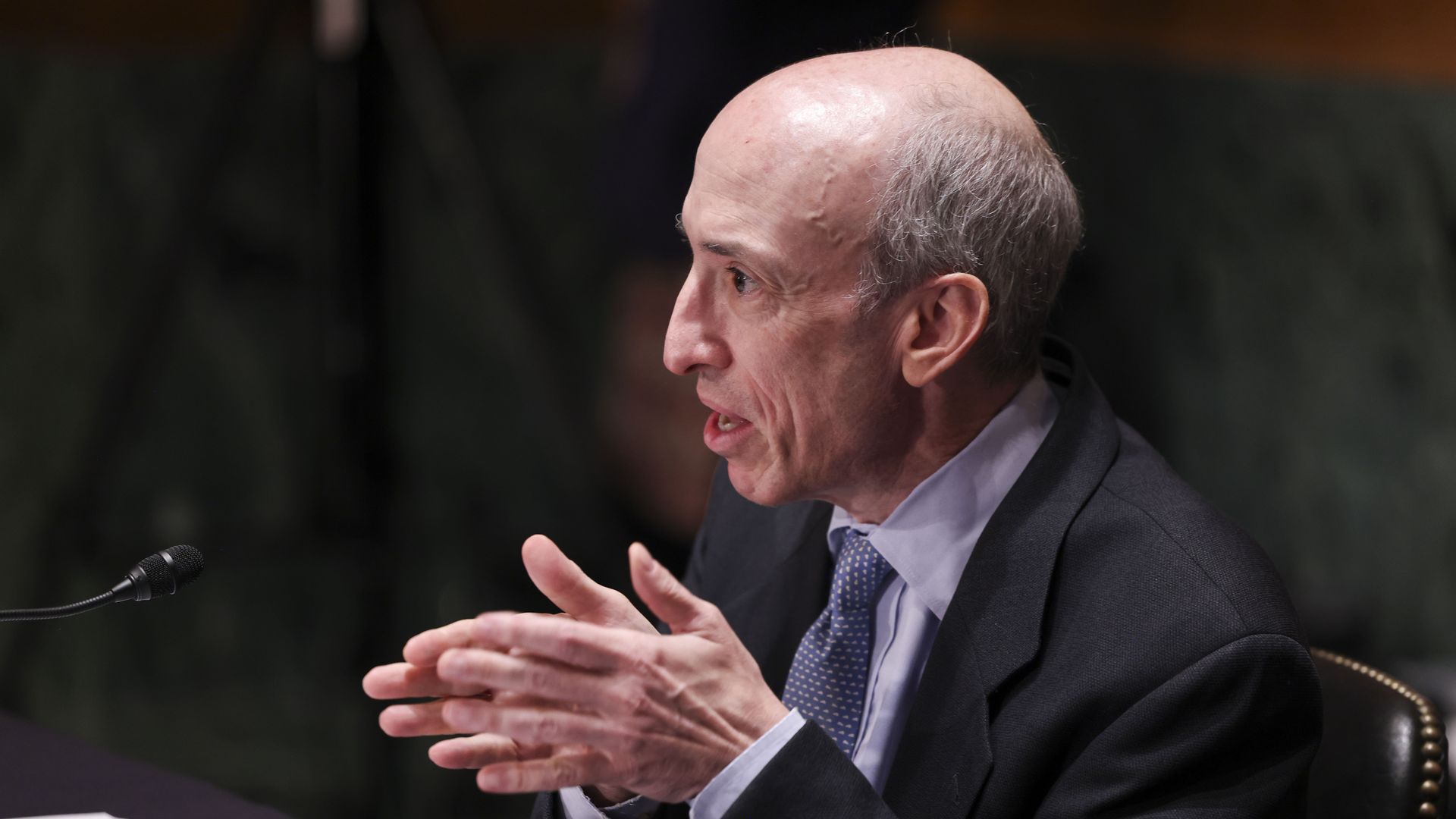Feb 9, 2022 - Economy
SEC considering tune up to "market plumbing" after meme stock craze
Add Axios as your preferred source to
see more of our stories on Google.

SEC chair Gary Gensler testifies before the Senate banking committee (Evelyn HocksteinGetty Images)
